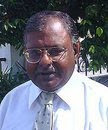Malaysia
May Day: Asia's socialists -- Intensify the struggle against poverty and neoliberalism
STOP PRESS: Socialist Party of Malaysia leaders, May Day marchers arrested
May 1, 20
`Coolie revolts': exclusive excerpt from 'The Devil's Milk: A social history of rubber'

The Devil’s Milk: A social history of rubber
By John Tully
Monthly Review Press, 2011
March 13, 2011 -- With the kind permission of Monthly Review Press, Links International Journal of Socialist Renewal is honoured to be able to bring its readers an exclusive excerpt from Australian socialist John Tully's fascinating new book, The Devil’s Milk: A social history of rubber. The section below details how the peoples of the colonies exploited by the imperialist rubber barons fought back against their oppression. Links readers are urged to purchase a copy of this excellent new book. See also an interview with John Tully about his new book, "New book reveals the history of rubber: holocausts, environmental destruction and class struggle".
Malaysian socialists: `Stop brutal massacre in Libya NOW! Power to the people of the Arab world!
Solidarity statement by the Socialist Party of Malaysia with the people's uprising in Libya and the rest of Arab world against authoritarian regimes
February 22, 2011 -- The Socialist Party of Malaysia (PSM) condemns the brutal repression committed by Muammar al-Gaddafi’s regime against its people who revolt against injustices and corruptions.
New book reveals the history of rubber: holocausts, environmental destruction and class struggle

The Devil’s Milk: A social history of rubber
By John Tully
Monthly Review Press, 2011
[Order the The Devil’s Milk from Monthly Review Press HERE. John Tully launched the book in Melbourne on February 17, at Readings Books, Carlton (309 Lygon St). He will also launch it in New York City on February 22, 7.30pm, at The Brecht Forum, 451 West Street.]
February 18, 2011 – Links International Journal of Socialist Renewal -- This new book from Monthly Review Press – by Australian socialist John Tully -- documents the history of rubber and the role it has played in the development of capitalism.
Rubber is an essential industrial material, although underappreciated by most of us, even though we are surrounded by it. Since its industrial uses began to be fully appreciated in the 1800s, the quest for rubber has been, in Tully’s words, “a paradigm of imperialism”.
Malaysian solidarity with Egypt: PAS & PSM lead protest at Egyptian embassy

By the Socialist Party of Malaysia
January 31, 2011 -- Parti Sosialis Malaysia -- A last-minute mobilisation and continuous rain did not hinder about 70 protesters from assembling to call for Hosni Mubarak to step down as well as showing support to the brave people of Egypt. The protest and memorandum handing ceremony was led by Mohamad Sabu, from the Pan-Malaysian Islamic Party (Parti Islam Se-Malaysia, PAS) central committee, and S. Arutchelvan, Socialist Party of Malaysia (Part Sosialis Malaysia, PSM) secretary general.
The group walked a short distance and was greeted by around 50 police personnel in riot gear blocking the front entrance of the embassy. There were no confrontation with the police, who also desperately tried to get a representative from the embassy to take the memorandum. Like in Egypt, the situation at the embassy was equally uncertain as no one wanted to take the responsibility to receive the memorandum.
Rani Rasiah
2010-12-05 -- Links International Journal of Socialist Renewal/lewica.pl -- 1 maja 1996 Jawatankuasa Sokongan Masyarakat Ladang (JSML), sojusz pracowników plantacji należący do Jeringan Rakyat Tertindas [Sieć Opresjonowanych (JERIT, akronim oznaczający ‘krzyk’), malezyjskie zrzeszenie grup obywatelskich], rozpoczął kampanię na rzecz wprowadzenia minimalnego miesięcznego wynagrodzenia dla robotników. Wzywał on do całkowitego zerwania z opartym na skrajnym wyzysku, kolonialnym systemem wynagrodzeń, w którym robotnikom wypłacano dniówki o wysokości zależnej od rynkowej ceny oleju, pogody i zbiorów - czynników całkowicie niezależnych od pracowników.
Poparcie opinii publicznej dla płacy minimalnej w wysokości 750 ringgitów wzrosło, kiedy w trakcie kampanii rzucono światło na skandaliczny kontrast pomiędzy zamożnymi, acz bezwzględnymi potentatami, a żyjącymi w biedzie i zacofaniu 300 tysiącami pracowników. Co więcej, ujawniono, że największym udziałowcem we wszystkich większych firmach plantacyjnych był rząd, pod przykrywką agencji w rodzaju Permodalan Nasional Berhad i Amanah Saham Nasional.
Malaysia: The minimum wage farce

Palm oil plantation worker, Malaysia.
By Rani Rasiah
November 2, 2010 -- On 1 May 1996, Jawatankuasa Sokongan Masyarakat Ladang (JSML), the plantation workers' coalition of Jeringan Rakyat Tertindas (JERIT, the Oppressed People's Network), launched the campaign for a minimum monthly wage for estate workers. It called for a total revamp of the highly exploitative colonial wage system which assigned estate workers a daily wage that was subject to market price, weather conditions and crop yield, all factors beyond the control of the worker.
Public support for the RM750 monthly wage demand grew as the campaign shone the spotlight on the scandalous contrast between the affluent yet rapacious plantation capitalists and the then 300,000 estate workers who lived in poverty and backwardness. What was more, it was revealed that the largest shareholder in every major plantation company was the government itself, in the guise of agencies such as Permodalan Nasional Berhad and Amanah Saham Nasional.
Malaysia: 'Draconian, oppressive' amendments to labour law
PSM secretary-general S. Arutchelvan addresses the October 1, press conference. Video journalist: Hisyam Salleh.
By Philip Ho
Kuala Lumpur, October 1 -- klik4Malaysia -- Socialist Party of Malaysia (Parti Sosialis Malaysia, PSM) secretary-general S. Arutchelvan called the proposed labour law review by the Malaysian government's Human Resources Ministry, which will be tabled in the coming parliament sitting, "draconian" as it practically destroys whatever remaining rights workers have left.
Malaysia: Bringing power to the people (+video)
By Stephanie Sta Maria
PETALING JAYA, Malaysia, August 6, 2010 -- Free Malaysia Today -- Kota Damansara assemblyman and Socialist Party of Malaysia (PSM) chairman Nasir Hashim is a realist. But he is also fond of quoting Argentinian revolutionary Che Guevara to “be realistic and do the impossible”.
And Nasir is doing the impossible: he is spearheading an ambitious project to eradicate urban poverty in a small community in the vicinity of Ara Damansara, Petaling Jaya.
The project has a bold vision. It will empower the poor not only by developing their skill sets but also by encouraging a mindset shift from that of victim to victor. The project also aims to have various parties – federal and Selangor governments, businesses, non-governmental organisations and local communities – working hand-in-hand to achieve this vision. It is a radical concept and one that could be seen as remarkably idealistic.
Malaysia: Barricades greet anti-ISA vigils, 36 arrested
By Lee Way Loon and Hazlan Zakaria
August 1, 2010 -- Malaysiakini -- Riot police barred activists from holding candlelight vigils to commemorate the Internal Security Act's 50th anniversary in eight places around the country.
At Dataran MBPJ, Padang Timur in Petaling Jaya, Selangor -- which saw the earliest vigil begin at 8pm -- members of the police Light Strike Force (LSF) began dispersing the 300-strong crowd just as the latter began singing while marching from the mall, through the adjacent car park and towards the field across the main road.
As they approached the field, they were confronted by a wall of LSF shields wielded by about 30 riot police, backed by another 50 uniformed police.
Malaysia: PSM congress debates relationship with opposition Pakatan Rakyat
June 9, 2010 -- The Socialist Party of Malaysia's 12th Congress was held in Kuala Lumpur on June 5-6, 2010. Three hundred delegates from nine states, and allied organisationd and grassroots committees, attended. The congress was officiated by the PSM’s national chairperson Comrade Nasir Hashim. Three papers were presented on the environmental crisis facing the world, leadership transition in PSM and the Malaysian governments economic policies. Resolutions (see below) were debated on the second day touching on idelogical questions, local government elections and the PSM's relationship with the opposition Pakatan Rakyat.
PSM's 12th Congress resolutions
